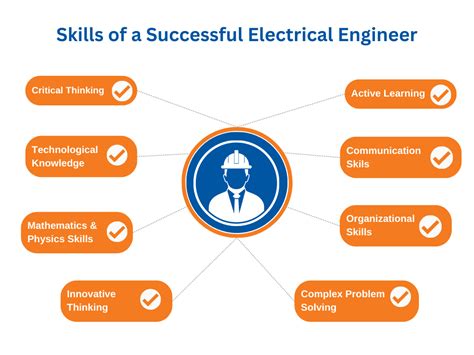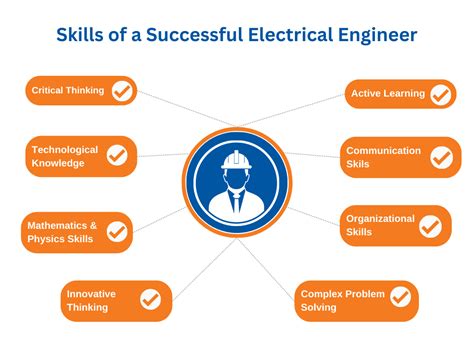What Electrical Engineers Do

The Role of Electrical Engineers in Shaping the Modern World

Electrical engineers play a crucial role in designing, developing, and maintaining the electrical systems that power our homes, industries, and transportation systems. They are responsible for ensuring that electrical systems are safe, efficient, and reliable. From the smartphones we use to communicate to the power grids that supply electricity to our homes, electrical engineers are involved in every stage of the development process.
Key Responsibilities of Electrical Engineers

Electrical engineers are responsible for a wide range of tasks, including:
- Designing and developing electrical systems, such as electrical circuits, electronics, and electromagnetism
- Conducting experiments and testing electrical systems to ensure they meet safety and performance standards
- Analyzing data and troubleshooting electrical systems to identify and resolve problems
- Collaborating with other engineers and technicians to design and implement electrical systems
- Ensuring that electrical systems comply with safety regulations and industry standards
- Developing and implementing maintenance and repair schedules for electrical systems
Specializations in Electrical Engineering

Electrical engineers can specialize in a variety of areas, including:
- Power engineering: designing and developing electrical power systems, including power generation, transmission, and distribution
- Control systems: designing and developing control systems that use electrical and electronic components to regulate and control mechanical systems
- Electronics engineering: designing and developing electronic circuits and systems, including microprocessors and computer hardware
- Telecommunications engineering: designing and developing communication systems, including phone and internet networks
- Computer engineering: designing and developing computer hardware and software
The Skills and Qualifications Required to Become an Electrical Engineer

To become an electrical engineer, you typically need to have a bachelor’s degree in electrical engineering or a related field. Many electrical engineers also have a master’s or Ph.D. in electrical engineering. In addition to formal education, electrical engineers need to have:
- Strong analytical and problem-solving skills: electrical engineers need to be able to analyze complex electrical systems and identify and resolve problems
- Excellent communication skills: electrical engineers need to be able to communicate effectively with other engineers, technicians, and stakeholders
- Attention to detail: electrical engineers need to be meticulous and detail-oriented when designing and testing electrical systems
- Ability to work in a team: electrical engineers often work in teams, so they need to be able to collaborate and work effectively with others
💡 Note: Many countries require electrical engineers to be licensed or certified before they can practice. Requirements for licensure or certification vary by country, so it's essential to check the specific requirements for your location.
How to Get Started in Electrical Engineering

If you’re interested in pursuing a career in electrical engineering, here are some steps you can take to get started:
- Take math and science courses: electrical engineering requires a strong foundation in math and science, so take courses in physics, mathematics, and computer science
- Join online communities and forums: join online communities and forums to connect with other electrical engineers and learn about new developments in the field
- Participate in robotics or electronics clubs: many schools and universities have robotics or electronics clubs that can provide hands-on experience with electrical systems
- Consider internships or co-op programs: many companies offer internships or co-op programs that can provide valuable work experience and help you build connections in the industry
Conclusion

Electrical engineers play a vital role in designing and developing the electrical systems that power our modern world. With a strong foundation in math and science, electrical engineers can pursue a wide range of specializations, from power engineering to computer engineering. Whether you’re just starting out or looking to advance your career, there are many resources available to help you succeed in this exciting and rewarding field.
What is the difference between an electrical engineer and an electronics engineer?

+
Electrical engineers focus on the design and development of electrical systems, including power generation and distribution, while electronics engineers focus on the design and development of electronic circuits and systems, including microprocessors and computer hardware.
What is the typical salary range for an electrical engineer?

+
The typical salary range for an electrical engineer varies depending on location, experience, and industry. However, according to the Bureau of Labor Statistics, the median annual salary for electrical engineers in the United States is around $100,000.
What are some emerging trends in electrical engineering?

+
Some emerging trends in electrical engineering include the increasing use of renewable energy sources, the development of smart grids and smart homes, and the integration of electrical and computer engineering to create new technologies such as robotics and autonomous vehicles.



